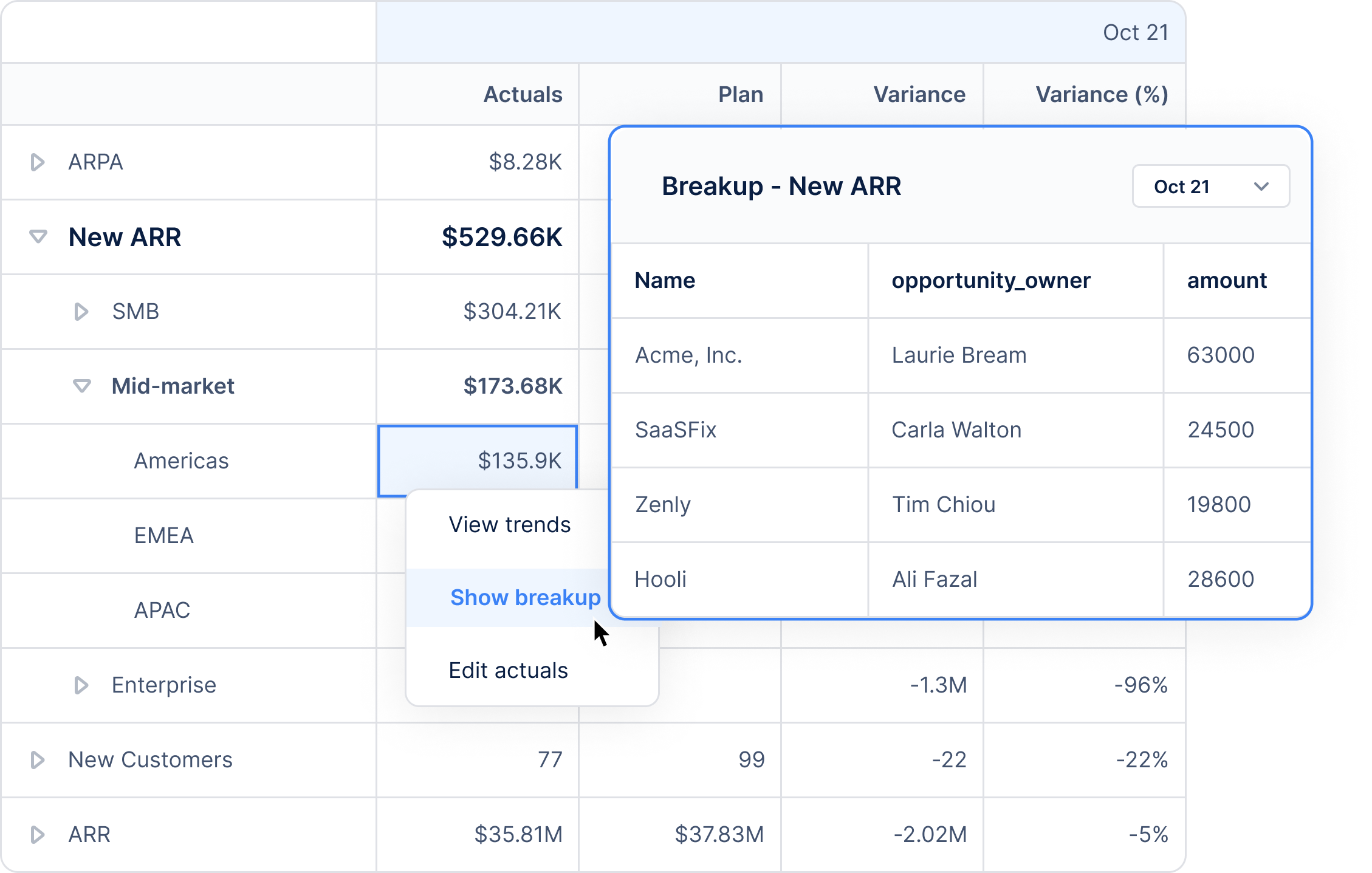Businesses usually plot their growth strategies on spreadsheets, but Drivetrain wants to provide a faster alternative for financial planning and decision-making. The startup, which calls itself “Google Maps for business growth,” announced today that it has raised $15 million from Elevation Capital, Jungle Ventures and Venture Highway, plus 25 angel investors.
One of Drivetrain’s goals is to help companies identify performance issues before it affects their finances. It integrates with 200 business tools, including Salesforce, Netsuite, Quickbooks, Workday and Looker, and delivers a “system of metrics” in simple formulas to help companies create financial models and visualizations.
Drivetrain currently focuses on finance teams at midmarket and enterprise B2B tech businesses. CEO Alok Goel, who co-founded Drivetrain with CTO Tarkeshwar Thakur and CPO Saurav Bhagat, was formerly a partner at Elevation Capital, which has $670 million assets under management. During his six years at the firm, Goel evaluated hundreds of SaaS companies and served on many of their boards.
“One question that fascinated me was ‘what makes the execution of a company predictable’? How does a company consistently achieve targets quarter after quarter? Why do some companies grow faster while others get stuck?” he said.
He saw that top-performing companies used data in their decision-making. “Fundamentally because complex businesses like SaaS have this jigsaw nature to them, where pieces need to fall in place at the right time for an outcome to occur later,” Goel added. “This requires a systems-thinking and a data-driven approach.”

Drivetrain’s software showing revenue and customer buildup report with line items for analysis and insights. Image Credits: Drivetrain
By connecting to different software, Drivetrain is able to aggregate data and make it easier for teams to understand, aiding them as they create financial plans, do plan-versus-actual tracking, create what-if scenarios and perform root cause analysis. To do that, Drivetrain created a language called DTML (Drivetrain Modeling Language), or programs that capture how businesses are run in an easy-to-understand spreadsheet user interface.
One of its clients, Airmeet, used Drivetrain to cut down on the time it spent exporting and consolidating data across its Quickbooks accounts, Excel files and Chargebee data. By automating its financial reporting and monthly forecasting, Airmeet was able to make its financial data and business metrics accessible to everyone, increasing collaboration because teams no longer had to wait for monthly reports from the finance team.

Drivetrain’s team. Image Credits: Drivetrain
Another client, Mindtickle, used Drivetrain to automate data gathering and consolidation for its sales, marketing and revenue operations teams. This makes accurate numbers accessible at all times and means employees no longer have to go through reams of individual spreadsheets.
There are legacy tools like Anaplan and Adaptive for enterprise users, but Goel says they require heavy customization and consultants to implement over a six to 12 month period. Drivetrain improves on the process by integrating quickly with ERPs, CRMs, marketing software and HRIS. Goel says it is usually ready to use in two to four weeks, with customers expanding into new use cases like sales performance management, headcount planning and what-if scenarios after they get a handle on its planning and monitoring modules.
In a prepared statement, Venture Highway partner Priya Mohan said, “We have struggled to put together Excel sheets for portfolio companies to predict revenue growth, structure the go-to-market plan and understand levers that would affect revenue and margin growth. Spreadsheets and existing tools fail to do this in real time. Drivetrain’s scientific approach to scaling business predictably resonated with us.”
